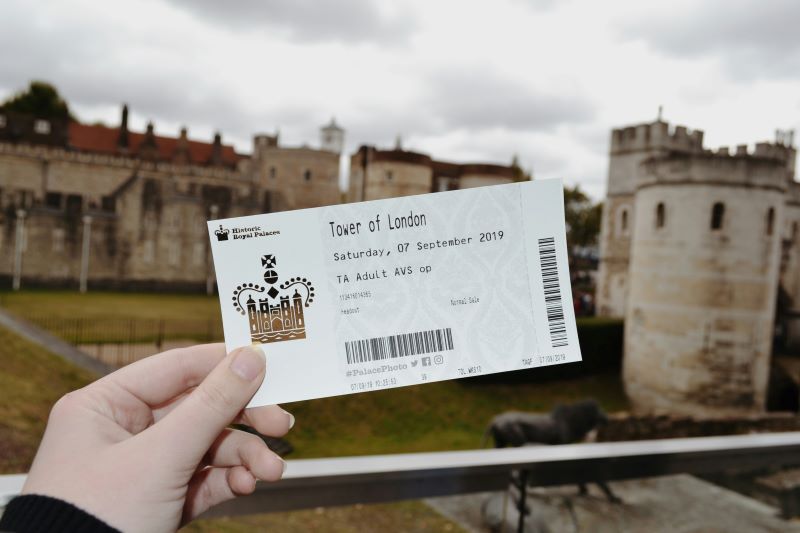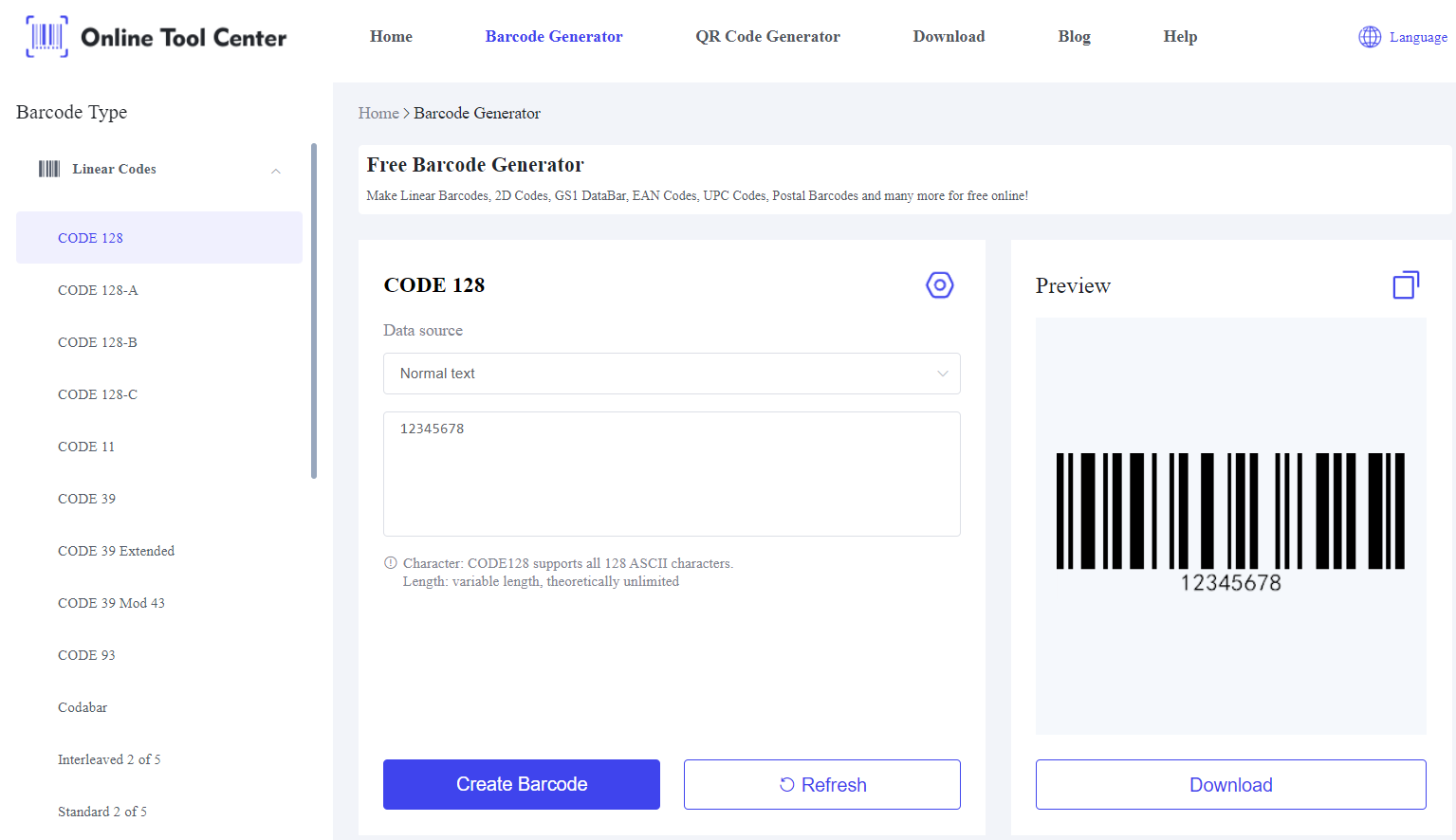Ticket barcodes have changed the way we manage and access events, transportation, and various services. This guide explores everything you need to know about ticket barcodes, including their types, benefits, generation, and troubleshooting. With a free barcode generator, creating and managing barcoded tickets has never been easier.
What is a Ticket Barcode?
A ticket barcode is a machine-readable code printed on a ticket that contains information about the ticket holder and the event or service. These barcodes are scanned at entry points to validate the ticket and grant access.
Ticket barcodes can be found on physical tickets, e-tickets, and mobile tickets, ensuring a streamlined and secure entry process.
Types of Barcodes Used on Tickets
1. Linear Barcodes
● UPC (Universal Product Code):
Commonly used in retail, UPC barcodes can also be used for simple ticketing needs. They are easily scannable but contain less information compared to other types.
● Code 39:
This alphanumeric barcode is widely used for industrial purposes and can be utilized for tickets that require both numbers and letters.
● Code 128:
Known for its high data density, Code 128 can store more information than UPC and Code 39, making it ideal for more detailed ticketing requirements.
2. 2D Barcodes
● QR Codes:
QR codes are popular in ticketing for their ability to hold a large amount of data, including URLs, personal information, and event details. They can be easily scanned with smartphones.
● PDF417:
This barcode type is often used for government-issued identification and boarding passes. It can store a significant amount of data and includes error correction capabilities.

How Ticket Barcodes Work?
Barcode technology involves encoding data into a visual pattern that a scanner can read. The process of generating a barcode for a ticket includes:
1. Data Encoding:
Information such as the ticket holder's name, event details, and unique identification numbers are encoded into the barcode.
2. Barcode Generation:
Using tools like a free barcode generator, barcodes can be generated in various formats.
3. Printing:
The generated barcode is printed on the ticket or embedded in a digital ticket format.
Accuracy in barcode ticket generation is crucial to avoid errors during scanning and to ensure smooth entry processes.
Benefits of Using Barcode on Tickets
Barcodes enable quick and efficient scanning, reducing wait times and ensuring smooth crowd management at events.
Barcodes can include encrypted information, making it difficult for counterfeiters to replicate tickets. Each barcode is unique to the ticket, making duplication challenging and minimizing fraud.
Barcodes allow for the easy collection and analysis of attendance data, helping organizers manage their events more effectively.
How to Create a Barcode for a Ticket?
Creating a barcode for a ticket is an easy process:
1. Access an Online Free Barcode Generator: Visit a free barcode generator.

2. Input Ticket Information:
Enter the required data such as event details, ticket holder information, and any other relevant information.
3. Select Barcode Type:
Choose the appropriate barcode type (e.g., QR code, Code 128).
4. Customize:
Adjust the size, format, and any embedded information as needed.
5. Generate and Print:
Generate the barcode and print it on physical tickets or embed it in digital tickets.
Scanning Ticket Barcodes
Scanning ticket barcodes can be done using various methods:
1. Handheld Barcode Scanners: These are commonly used at entry points for quick and efficient scanning.
2. Mobile Apps: Many mobile apps are available that can scan barcodes using a smartphone camera.
3. Integration with Ticketing Systems: Advanced ticketing systems integrate barcode scanners for tickets to streamline the entry process.
Handheld scanners and mobile apps are commonly used. Choose one based on the volume and type of tickets you handle.
Case Studies of Barcode on Tickets
1. Concerts and Festivals
Large-scale music festivals and concerts often attract thousands of attendees. Managing such large crowds efficiently is crucial to the event's success. Barcoded tickets have become a standard practice in this industry.
For example, Coachella, one of the world's largest music festivals, uses barcoded tickets to streamline entry. Attendees can simply scan their barcoded tickets at the entrance, significantly reducing wait times.
This technology also helps in controlling access to different areas within the venue, ensuring that only ticket holders with the appropriate credentials can access VIP areas or backstage.
2. Sports Events
Sporting events, ranging from local games to international championships, rely heavily on ticket barcodes for efficient entry management.
For instance, the FIFA World Cup uses sophisticated barcode technology to handle the influx of spectators. Each ticket contains a unique barcode that is scanned upon entry, verifying the ticket's authenticity and granting access to the stadium.
3. Theme Parks
Theme parks like Disneyland and Universal Studios have adopted barcoded tickets to manage entry and enhance visitor experiences.
Visitors can purchase tickets online and receive them via email, complete with a barcode. At the park entrance, the barcode is scanned to grant access.
Additionally, these barcoded tickets can be linked to visitor profiles, enabling seamless access to rides and attractions, as well as facilitating purchases within the park.
FAQs about Barcode on Tickets
1. How do I verify a ticket barcode?
Use a barcode scanner for tickets or a mobile app to verify the barcode against the ticketing database.
2. Do e-tickets have barcodes?
Yes, e-tickets typically include barcodes for easy scanning and verification.
3. Can you scan tickets on your phone?
Yes, mobile apps are available that allow you to scan barcodes using your phone's camera.
To conclude, ticket barcodes are essential for modern ticketing systems, providing numerous benefits such as streamlined entry, enhanced security, and efficient data management. A free barcode generator makes it easy to generate and customize barcodes for your tickets.
Embrace barcode technology to enhance your event or service management and ensure a smooth experience for your attendees.




